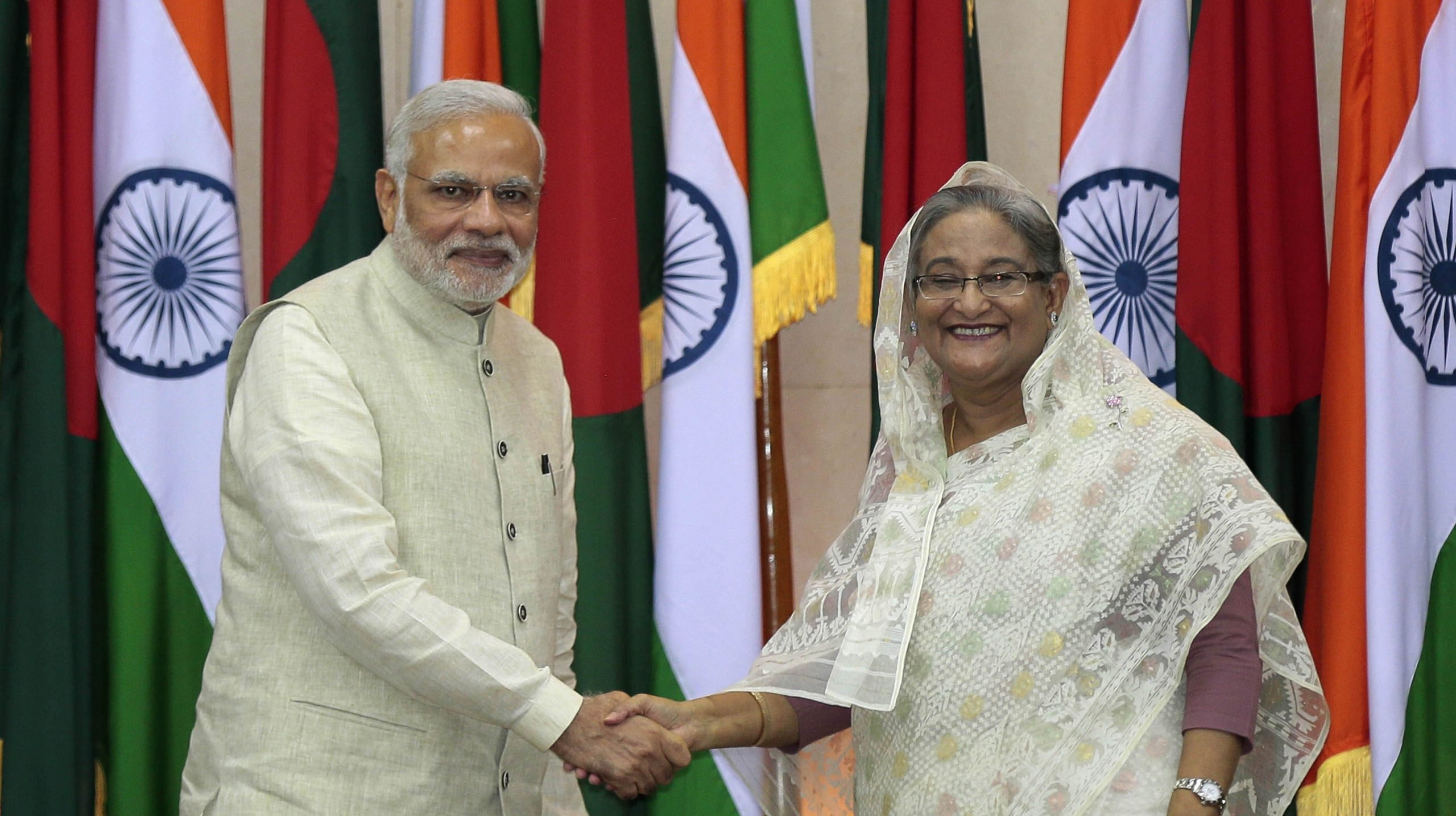

Bangladesh Prime Minister Sheikh Hasina and her Indian counterpart Narendra Modi
DHAKA: At a crucial juncture of an energy crisis, the much-awaited oil pipeline has been formally inaugurated jointly through video conferencing by Bangladesh Prime Minister Sheikh Hasina and her Indian counterpart Narendra Modi on Saturday.
At the inaugural ceremony, Sheikh Hasina and Narendra Modi both said that the Bangladesh-India Friendship Pipeline will “enhance cooperation in energy security” between the two countries.
The Indian Prime Minister said, “I am confident that this pipeline will further speed up the development of Bangladesh and be an excellent example of the increasing connectivity between….both the countries.”
Terming the India-Bangladesh Friendship Pipeline as ground-breaking in Bangladesh’s energy history, Sheikh Hasina said, “When many countries….are on the verge of [a] fuel crisis due to the Russia-Ukraine war at that time this pipeline will play a vital role in ensuring fuel security of our people.”
The first cross-border international oil pipeline is yet another landmark in the development partnership with neighbouring India.
According to officials of Bangladesh Petroleum Corporation (BPC), India would export high-speed diesel (HSD) through the 131.57 km India -Bangladesh Friendship Pipeline (IBFPL) project, built at a cost of around IRS 3.77 billion drawn from the Indian line of credit (LoC). Indian loan includes IRS 2.85 billion to construct a pipeline inside Bangladesh territory.
The Bangladesh-India Friendship Pipeline will put in place a sustainable, reliable, cost-effective and environment-friendly mode of transporting HSD from India to Bangladesh, an official of the Indian Ministry of External Affairs observed.
The project will enable high-speed diesel to be exported from India’s Siliguri Marketing Terminal in West Bengal State to Bangladesh’s Parbatipur in Dinajpur.
High-speed diesel will be flowing from the Numaligarh Refinery Limited distribution terminal for testing of the pipeline from Mar 8, according to ABM Azad, chairman of BPC, the state fuel importer and distributor.
The pipeline stretches 125 km inside Bangladesh territory and 5 km inside India. The two prime ministers joined the ground-breaking ceremony for the IBFPL in September 2018 through video conferencing.
The construction of the pipeline project began in March 2020 and had a deadline for completion by June 2022. Due to the COVID-19 pandemic, the trial and test of the oil supply through the pipeline were delayed.
The HSD transmission will augment fossil energy-starved northern Bangladesh. The pipeline will ensure uninterrupted, fast and affordable means to 16 districts in the region, which needs nearly one million tonnes of fuel annually.
Bangladesh used to import diesel from India through railway carriages, which was time-consuming and hassle to unload, store and distribution manually. The pipeline will significantly reduce its transport costs for Bangladesh, officials said.
According to the Dhaka-Delhi 15-year agreement, India will export 200,000 tonnes of oil annually in the first three years, 300,000 tonnes per annum in the next three years, 500,000 tonnes annually in the next four years and 1 million tonnes annually in the first phase. The second term would be extended based on the consensus of the countries.
Last year, Bangladesh imported six million tonnes of petrol, octane, and diesel. Diesel alone accounted for 75% of fuel oils – 80% of which is met through direct imports, according to a report published last year.
Bangladesh pays $11 in premium per barrel of fuel purchased from the international market, while the premium will be $5.5 per barrel in the pipeline project. “It means we will be able to save around $6 per barrel in premium,” the BPC official said.
In the wake of a fuel crisis, the friendship oil pipeline project is expected to boost long-term business growth and bilateral ties between the two countries, an energy expert said.
(Saleem Samad is a Dhaka based journalist, who writes for India Narrative, specialising in international Affairs)
Union Minister of Coal and Mines G Kishan Reddy on Tuesday held an inter-ministerial meeting…
India's largest automobile in-plant railway siding at Maruti Suzuki's Manesar facility started operation on Tuesday,…
Google on Tuesday unveiled its Safety Charter for India's AI-led transformation, at the "Safer with…
The human rights organisation of the Baloch National Movement (BNM), Paank, has published its most…
The Israel Defence Forces (IDF) on Tuesday claimed that it has killed Iran's senior-most military…
Amid escalating conflict between Iran and Israel, the Ministry of External Affairs (MEA) on Tuesday…